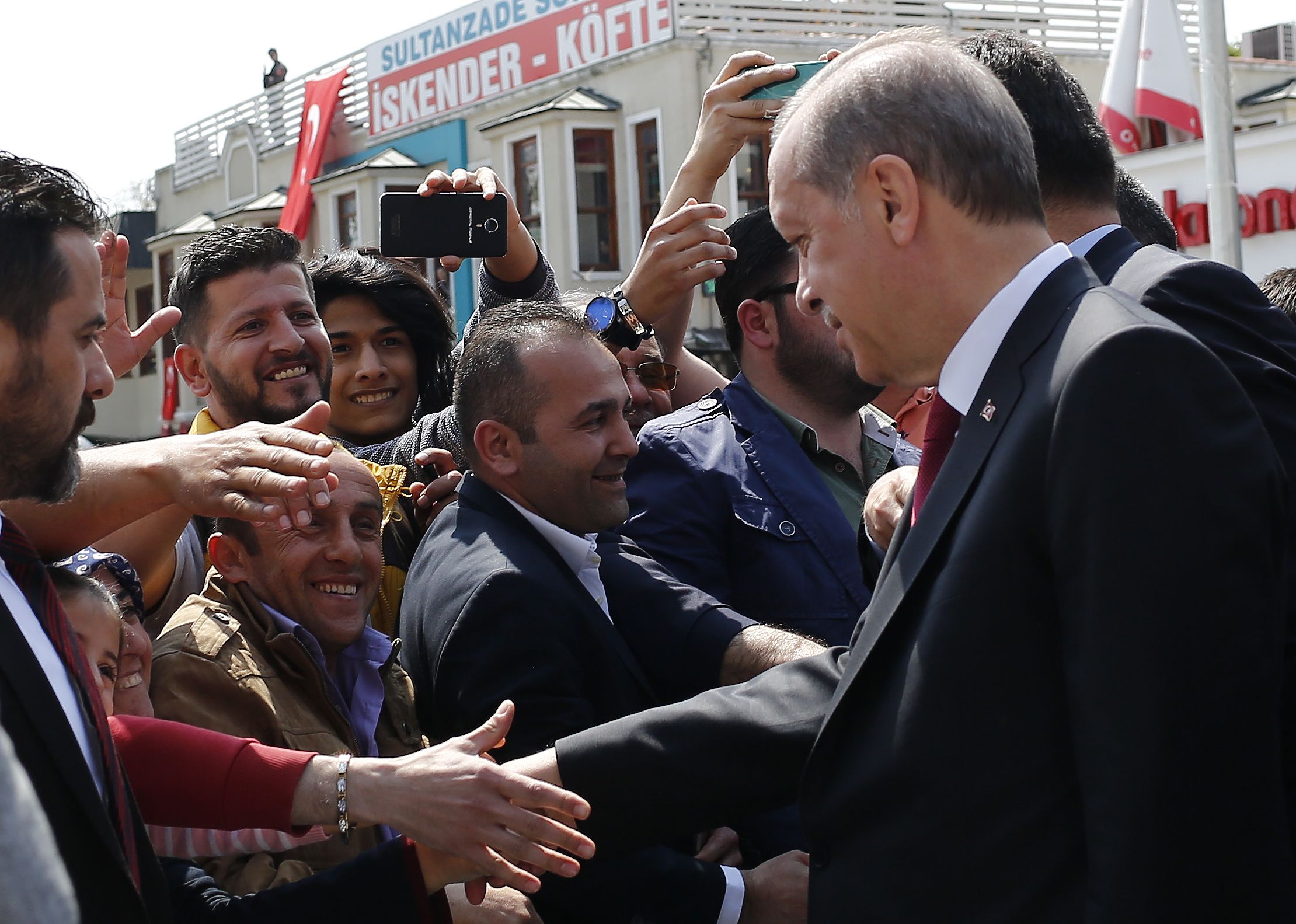
Turkey's President Recep Tayyip Erdogan has suggested holding a referendum on reinstating the death penalty—a move that, if successful, would end the country's long-running attempt to join the European Union.
Turkish voters backed a constitutional referendum that concentrates power in the hands of the president on Sunday. With 99.97 percent of the ballots counted by Monday, the "Yes" campaign had taken 51.41 percent of the vote compared to 48.59 percent who voted against the changes, BBC reported.
The main opposition party has said it will challenge the result on the basis of irregularities—including the use of unstamped ballot papers—but the head of the country's electoral body has said the result is valid.
Read more: An authoritarian regime within Nato? Why the Turkish referendum matters
Turkey has been trying to join the EU and its predecessor, the European Economic Community, for 30 years. The European Council recognized Turkey as a candidate for full membership in 1999 and negotiations were opened in 2005, but have since been suspended over concerns of authoritarianism in Turkey.
Turkey abolished the death penalty in 2004, and the EU has warned that its reinstatement would constitute the end of Turkey's accession bid.
In his victory speech on Sunday night in Istanbul, Erdogan told crowds of supporters that he would "immediately" discuss the reinstatement of capital punishment with his prime minister, Binali Yildirim, and the leader of the opposition Nationalist Movement Party, Devlet Bahceli, who also backed the "Yes" campaign, according to Reuters.
Erdogan said that he would approve any parliamentary bill to reinstate the death penalty, but that if parliament didn't support it, the decision could be put to the Turkish people in another referendum, according to AFP.
The Turkish president has been particularly vocal in calling for a return to capital punishment since the failed coup of July 2016, when a section of the Turkish military attempted to seize power in an uprising that Erdogan has pinned on U.S.-based Turkish cleric Fethullah Gulen.
Turkish authorities have arrested tens of thousands of people across all sectors of society following the coup under a state of emergency, denounced as authoritarian by human rights groups.
The EU has consistently warned Ankara against reintroducing the death penalty. in an interview with German newspaper Bild am Sonntag, European Commission head Jean-Claude Juncker said that capital punishment was a "red line" and its reinstatement in Turkey "would lead to the end of negotiations." The European Convention on Human Rights, which new EU member states are required to sign up to, calls for a universal abolition of the death penalty except in rare situations during times of war.
The current president of the European Parliament, Antonio Tajani, tweeted on Monday that he was "very concerned" by the possibility of a referendum on reintroducing the death penalty. "Red line for European Union," he said.
Erdogan has adopted an increasingly combative tone toward the EU in recent months. Following decisions by German and Dutch authorities to block pro-Erdogan rallies in their countries ahead of the referendum, the Turkish president characterized his European opponents as the "grandchildren of Nazism." Erdogan has also said he may put Turkey's bid to join the EU to a referendum.
Sunday's vote grants sweeping powers to Erdogan, including the ability to directly appoint ministers and intervene in the judiciary. The result has exposed divisions in Turkish society; the country's three biggest cities—Istanbul, Ankara and Izmir—all voted against the constitutional changes.
A European Commission statement urged the Turkish government to "seek the broadest possible national consensus" in the implementation of the constitutional changes, given the close result. German Chancellor Angela Merkel said that the tight result "shows how deeply divided Turkish society is" and said the result entailed "a big responsibility for the Turkish leadership and President Erdogan personally."
Uncommon Knowledge
Newsweek is committed to challenging conventional wisdom and finding connections in the search for common ground.
Newsweek is committed to challenging conventional wisdom and finding connections in the search for common ground.
About the writer
Conor is a staff writer for Newsweek covering Africa, with a focus on Nigeria, security and conflict.
To read how Newsweek uses AI as a newsroom tool, Click here.








